Search
Did you mean: Muse?
Search Results

Definition
Chinese Literature
Chinese literature is among the most imaginative and interesting in the world. The precision of the language results in perfectly realized images whether in poetry or prose and, as with all great literature, the themes are timeless. The Chinese...
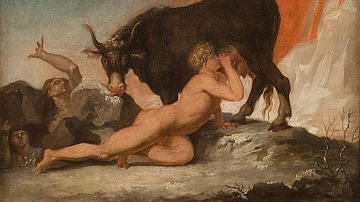
Definition
Ymir
Ymir is a primordial giant, closely linked to the creation myth and the beginning of the world in Norse mythology. A creature resulting from the dramatic encounter between ice and fire, he was fed by a cosmic cow and his body parts served...

Definition
Djed
The djed is an ancient Egyptian symbol for stability which features prominently in Egyptian art and architecture throughout the country's history. `Stability' should be understood to mean not only a firm footing but immutability and permanance...

Definition
Pasiphaë
Pasiphaë ("all-shining") is the wife of King Minos of Crete and the mother of the fearsome Minotaur (half-bull, half-man creature) in Greek mythology. She is the daughter of the sun god Helios and Perse, an Oceanid. Like her sister Circe...
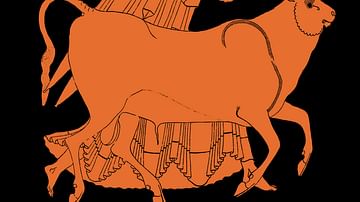
Definition
Europa - The Princess Europe is Named After
Europa is a figure from Greek mythology who later gave her name to the continent of Europe. In one popular version of her story Europa was a Phoenician princess who was abducted by Zeus and whisked off to Crete; King Minos, he of the labyrinth...
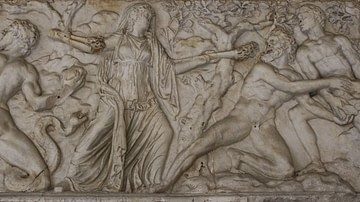
Definition
Leto
Leto is a Titan and the mother of the gods Apollo and Artemis in Greek mythology. Leto's twin children were the result of an amorous encounter with Zeus, and to avoid his wife Hera's wrath, the Titaness was obliged to give birth on the remote...
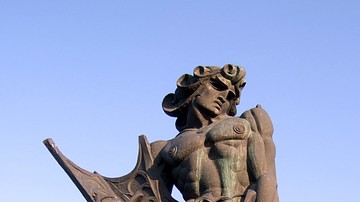
Definition
Armenian Mythology
The mythology of ancient Armenia is a rich blend of indigenous traditions with imported ideas from neighbouring cultures and migrating peoples added over the centuries. The legends and stories helped to explain natural phenomena, provide...
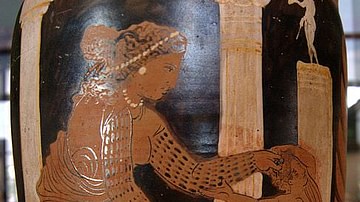
Definition
Medea (Play)
The tragedy Medea was written in 431 BCE by Euripides (c. 484 – 407 BCE). Euripides authored at least 90 plays of which 19 have survived intact. As with the plays by Sophocles and Aeschylus, the audience was already well aware of the myth...
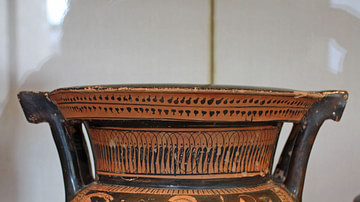
Article
Jason & the Argonauts - The Search for the Golden Fleece
The pan-Hellenic mythological hero Jason was famed for his expedition with the Argonauts - as the sailors on their ship the Argo were known - in search of the Golden Fleece in Kolchis on the Black Sea, one of the most popular and enduring...

Article
The Lamentations of Isis and Nephthys
The Lamentations of Isis and Nephthys is an ancient Egyptian text in which the two goddess-sisters call the soul of the god Osiris to rejoin the living. The poem takes the form of a call-and-response liturgy and the dual entreaties of the...